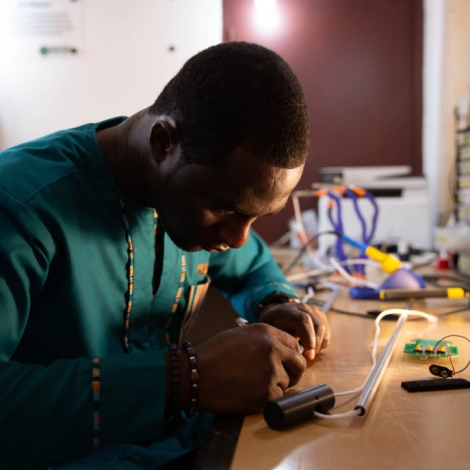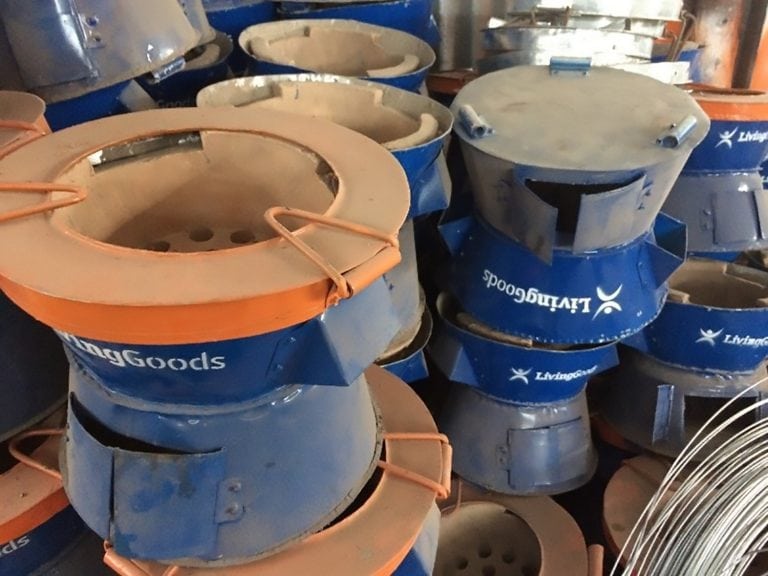Social enterprises may drive job growth in Africa, creating as many as 1 million new jobs in the next decade, new research suggests. To get there, however, they may need support in key areas detailed in a report by Siemens Stiftung, the non-profit foundation of the Siemens global engineering firm.
Three obstacles threaten the growth of Tebita Ambulance, a medical transport provider in Ethiopia. One is the limited workforce trained in healthcare from which the company can hire, another is an aversion to using ambulances among the low-income clients it services, and the third is the lack of foreign currency in Ethiopia that limits the company’s potential to attract capital, according to a new study on the social enterprise sector in Africa.
Sesi Technologies is a startup in a different sector and a differnt country, but the enterprise is up against the same obstacle to raising capital. Sesi, an agritech startup in Ghana, also faces two other challenges: competition with manufacturers in China, and larger businesses at home poaching its employees.
Tebita and Sesi are the subjects of two case studies in a report on social enterprise in Africa by Siemens Stiftung, the non-profit foundation of the Siemens global engineering firm. The startups represent a sector that has the potential to create 1 million new jobs over the next decade, according to the research. The sector could grow from roughly 4.3 million jobs in 2020 to nearly 5.5 million by 2030 in the 12 countries studied: Côte d’Ivoire, Egypt, Ethiopia, Ghana, Kenya, Morocco, Nigeria, Rwanda, Senegal, Tunisia, Uganda and South Africa.
We have seen the immense impact [social enterprises] can have through their contribution to supply but also through providing jobs for the people in the communities – Carola Schwank, Siemens Stiftung’s empowering people. Network
“Social enterprises can play an important role as they do not simply create new jobs but offer better, high-quality jobs. They employ people with poor chances on the labor market – unskilled people, young people, women or disabled job seekers,” Carola Schwank a co-author of the study and head of Siemens Stiftung’s empowering people. Network, told E4C by email.
The problems that confront Tebita and Sesi are common to many African social enterprises, as are their solutions. The researchers detail recommendations based on their findings that could help African countries retain and improve the quality of jobs in the social enterprise sector, as well as create more than the projected numbers. To realize their potential, social enterprises may need financial and technical support and an “enabling environment,” the report recommends.
Financial support: Competitions, employees and the missing middle
Social enterprises in Africa lack funding opportunities, especially for start-ups in the middle phases of growth, the study suggests. The solutions may lie in strategies that increase the funds available and improve how they are distributed. For example, impact venture capital funds and development impact bonds represent the kinds of financial tools that provide “patient” capital.
Offering more competitions that offer financial rewards could also help the social enterprise sector. In particular, competitions that target growth stages, not just newly launched start-ups, could have a substantial impact, according to the report.
Across the 12 countries included in the study, social enterprises appear to struggle with hiring and retaining employees. The enterprises compete with established non-profits and businesses. Supporting social enterprises as they hire and train employees could be a useful intervention in the sector, the authors recommend.
Technical support: Market research and operational efficiency
As social enterprises evolve from tiny operations with a handful of people in the orbit of the founders to larger, more complex organizations, they will need to hire and train employees who excel in areas such as governance and financial management, the report recommends. Key areas in need of support may include market research and insight into adapting products to fit the market as well as operational efficiency and human resources.
Create an Enabling Environment
Social enterprises in Africa can fulfill services that governments struggle to provide. To support the enterprises, governments and non-governmental organizations should give them preferential treatment when selecting contracts, the report recommends. Another helpful intervention would be to create programs that train people to work in social enterprise, thus expanding the pool of qualified workers from which to hire.
Not enough data
Siemens Stiftung’s research draws on a shallow pool of data. The authors admit to the problem and describe their statistical sampling and analysis methods to circumvent the issue. But, as they write, a final important means of supporting social enterprise in Africa would be to gather more data about the sector.
Given the paucity of data that the authors acknowledge and the almost painstaking measures taken to mitigate this situation, I do agree that social enterprises have a very large potential to generate jobs – Dr. Gunārs Platais, University of Colorado Boulder
“I think the recommendations are solid,” says Dr. Gunārs Platais, an instructor in the Global Engineering program at the University of Colorado Boulder, and an economist formerly at the World Bank, who was not involved in the study.
“As the authors acknowledge, the lack of good data hampered their studies and necessarily will have hampered their recommendations. However, the validation loops inserted into the study with knowledgeable experts offers tranquility to go forward with these. As in any policy discussion, as new data is collected and analyzed the conclusions of this study will need to be reviewed and adjusted accordingly,” Dr. Platais says.
Filling the blackhole of data will be paramount, Dr. Platais says.
“One cannot emphasize enough the importance of collecting the data going forward. In order to have a thriving Africa who has the potential of being the breadbasket of the world, one of the largest biodiversity havens on the planet and a beacon of sustainability, the continent needs to free itself of the shackles of poverty, lack of governance, natural resource mismanagement, insufficient education and poor health provision, amongst others. In order to do this, the collection of data is an important element that provides policy and decision makers with the ammunition to confront difficult situations, difficult choices and make those decisions that will allow the continent to soar as it deservedly should,” Dr. Platais says.
Next steps
The research suggests actions that governments and non-profits can take to propel the social enterprise sector in Africa. It also lays the foundation for new programs that Siemens Stiftung plans to initiate in 2021. The foundation plans to convene stakeholders to design new projects during the first half of 2021, then begin implementing them in the second half of the year.
Read the study at siemens-stiftung.org.


Thank you for the information.